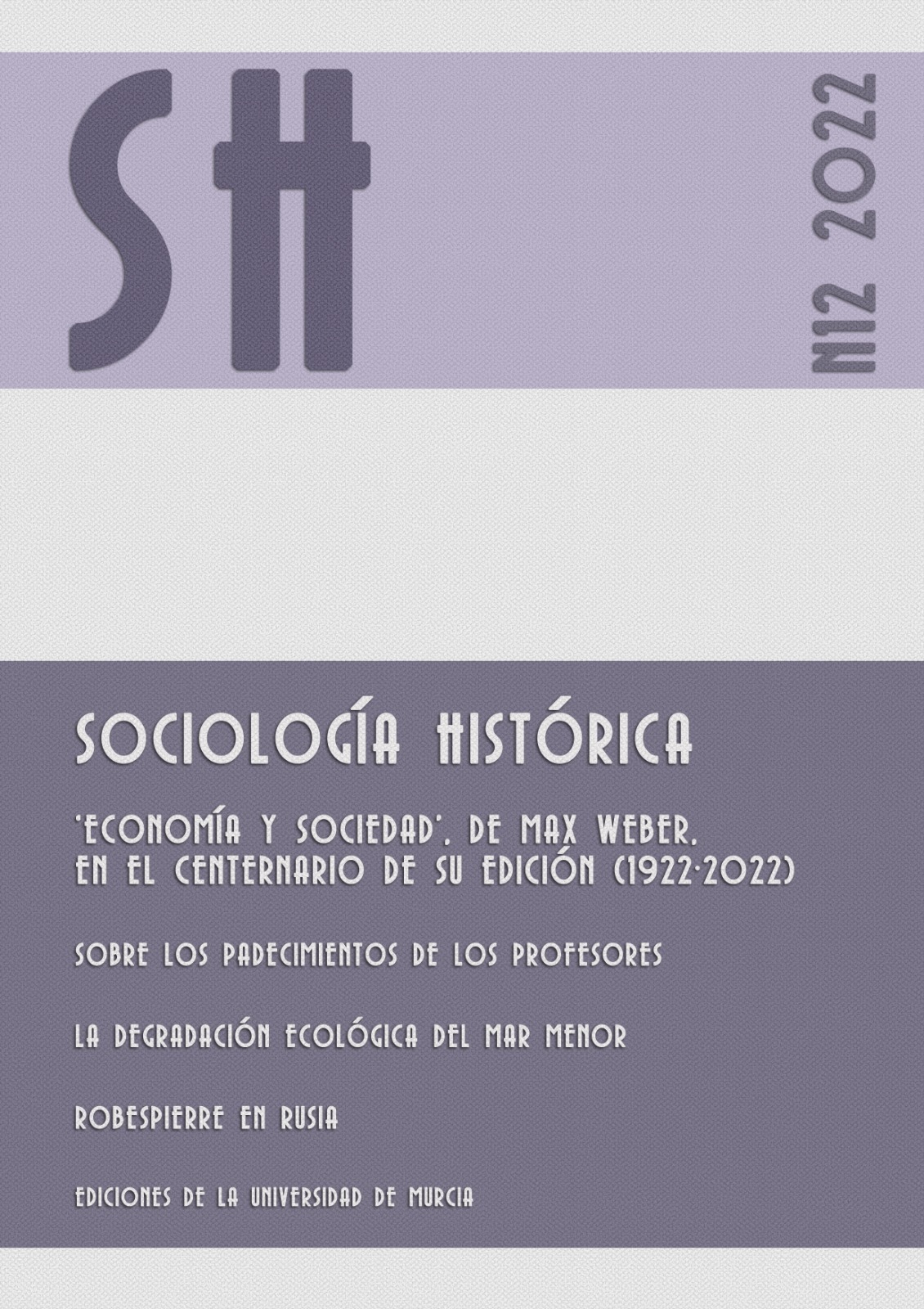Economy and Society: genealogy, structure and thematic coherence
Abstract
In his work as coordinator of the collective book Grundiss der Sozialökonomik, as well as in his contribution as author, which we know today as Economy and Society, Weber tried to make the methods and intellectual currents of his time compatible and integrated. He resolved the tension between the two dominant schools, the Prussian-inspired School of National Economy and the Austrian School of Economics, linked to the English tradition of classical economic analysis. Weber's aspiration was to understand the abstract method in a way that was not incompatible with the social-historical method. This tension between theory and history is the key, as analysed in this article, to understanding Weber's entire conceptual evolution and decisive for understanding the meaning of the final version of Economy and Society.
Downloads
-
Abstract518
-
PDF (Español (España))875
References
SCHLUCHTER, v. W. (2009): Wirtschaft und Gesellschaft, Entstehungsgeschichte und Dokumente, Dargestellt und herausgegeben, en Weber, M. Gesamtausgabe, I/24. J. C. B. Mohr (Paul Siebeck) Tübingen.
VON WIESER, F. (1910): Recht und Macht, Sechs Vorträge, Duncker and Humblot.
VON WIESER (1914): F. Theorie der gessellschaftlichen Wirtschaft, en el Grundriss der Sozialëkonomik, I Abteilung, Wirtschaft und Wirtschaftswissenschaft, Mohr, Siebeck, 1914, pp. 125-444.
WEBER, M. (1988): Gesammelte Aufsätze zur Wissenschaftslehre, Siebeck, Mohr, Tübingen, 7 edición.
WHIMSTER, S (2007): Understanding Weber, Routledge, Londres.
Copyright (c) 2023 Historical Sociology

This work is licensed under a Creative Commons Attribution-NonCommercial-NoDerivatives 4.0 International License.
Las obras que se publican en esta revista están sujetas a los siguientes términos:
1. El Servicio de Publicaciones de la Universidad de Murcia (la editorial) conserva los derechos patrimoniales (copyright) de las obras publicadas, y favorece y permite la reutilización de las mismas bajo la licencia de uso indicada en el punto 2.
2. Las obras se publican en la edición electrónica de la revista bajo una licencia Creative Commons Reconocimiento-NoComercial-SinObraDerivada 4.0 España (texto legal). Se pueden copiar, usar, difundir, transmitir y exponer públicamente, siempre que: i) se cite la autoría y la fuente original de su publicación (revista, editorial y URL de la obra); ii) no se usen para fines comerciales; iii) se mencione la existencia y especificaciones de esta licencia de uso.
3. Condiciones de auto-archivo. Se permite y se anima a los autores a difundir electrónicamente las versiones pre-print (versión antes de ser evaluada) y/o post-print (versión evaluada y aceptada para su publicación) de sus obras antes de su publicación, ya que favorece su circulación y difusión más temprana y con ello un posible aumento en su citación y alcance entre la comunidad académica. Color RoMEO: verde.










